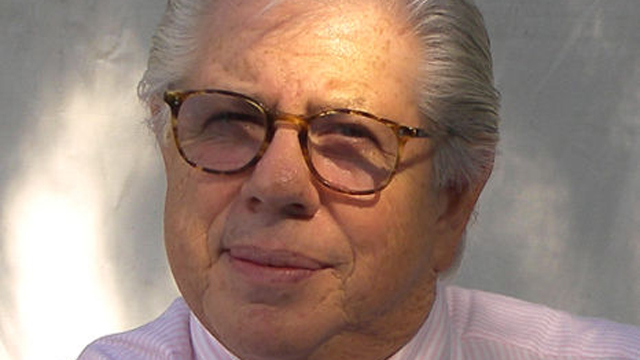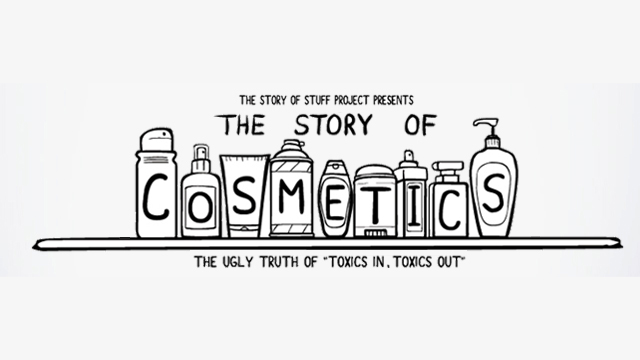Legendary reporter Carl Bernstein stopped by Big Think’s offices this afternoon for a video interview to talk about the legacy of Watergate, the state of investigative journalism today, and how […]
All Articles
Sometimes it seems that everyone has abandoned the notion that rational self-interest drives people’s decisions. It’s high time for some answers to the next obvious question: If Reason doesn’t rule […]
Today it started to cost me four dollars a week to keep a clean conscience. No, I’m not giving to the Church. I’m paying money to read the news (gasp!). […]
What does it mean to have our lives watched by an invited guest who never forgets anything he sees? Mr. Internet comes in many guises – Count Facebook, Mssr Twitter, Professor LinkedIn, […]
IT is ten days since French MPs voted to ban the Burqa, on the grounds that the garment “is an insult to the country’s values”. Yesterday two women wearing a […]
Money doesn’t buy happiness because when we try to treat ourselves, we can end up spoiling ourselves, ruining the enjoyment of everyday pleasures like a chocolate bar, says Wired Science.
“The heaviest and brightest star known to exist—with a mass some 300 times as big as our own Sun—has been discovered by British astronomers.” The Independent reports.
The disturbing imagery of blocking the sun to slow climate change aside, geoengineering faces serious practical concerns. The Economist looks at the ups and downs of this radical solution.
While appreciating music does stimulate the brain, “It will be a sad day when the only way to persuade educationalists to embrace music is via its side effects on cognition and intelligence.”
A former Treasury secretary, a labor union leader, a hedge-fund billionaire, and an heiress all agree: “The estate tax’s impending revival couldn’t come at a better time.”
In his new book, Wesley J. Smith says the precondition for the human rights movement is exactly what elevates humans above animals: namely, a moral sense of right and wrong.
Is current Middle East violence the after effect of a stabilizing Ottoman Empire or a modern consequence of leaders exploiting cultural differences for political gain?
“America, are you happy? The emotional words contained in hundreds of millions of messages posted to the Twitter website may hold the answer.” Two scientists on mulling Twitter data.
BP, Tiger Woods, Goldman Sachs: Why haven’t public relations machines been able to keep their companies’ images better intact? Have social media overwhelmed these propaganda machines?
“What’s wrong with praising our troops to the rafters and adding them to our pantheon of heroes? A lot.” A retired lieutenant colonel laments the blanket praise heaped on our troops.
Dani Shapiro’s recent New York Times editorial was not the first shot fired in the never-ending debate about the limits of artistic license, but it is one of the most […]
Phoebe Prince hanged herself in her bedroom in South Hadley, Massachusetts at the age of 15. Six students from her high school are charged with hounding her to suicide. Emily […]
Entomologist Mark Moffett stopped by the Big Think offices today to share a few lessons that he’s gleaned from his work studying ant societies and his time as a nature […]
In 2008, filmmaker and activist Annie Leonard launched The Story of Stuff – an ambitious animated web film aimed at raising awareness about the various systems of consumption and creating […]
I’ve been critiquing the Tea Party since its first stirrings in 2009. I’ve blogged, tweeted, reported, and even given public lectures about its roots in the socially conservative New Right, […]
Big news for publishers and bookish types: the number of electronic books sold on Amazon’s Kindle has exceeded the number of hardcover books sold through Amazon’s website, and by quite […]
Tomorrow at 2:00 PM EST, Big Think will host a live-streamed interview with the Jason Fried, co-founder of 37signals and author of the modern workplace manifesto “Rework.” Fried’s thoughts on […]
Novelist Bret Easton Ellis is used to people asking him about the numb, disconnectedness of his characters—and whether that’s a reflection of his own worldview. Not so much, he says: […]
Paul Di Filippo on, “How a long-dead Frenchman became one of the most important science fiction writers in current American culture.” Join the Jules Verne revival at Salon.com.
“If something has been around longer, it must be better. New research suggests we hold onto that bias even in instances where quality has nothing to do with longevity.”
“Thanks to period-music evangelists, breathtaking virtuosity, and millions of listeners, the art form remains vibrant.” The City Journal on the relevance of classical music today.
The arms industry, much like our domestic pacific economy, is looking for a bump in exports given the recession. Weapons manufacturers want to sell arms in the Middle East and Asia.
Is freedom of religion still a valued principle in America? “The Ground Zero mosque is only one of several mosques that are being strongly opposed. Opposition to mosques is on the rise.”
“Experts writing this year’s dietary guidelines say strong evidence indicates that moderate alcohol consumption results in a longer life and slower cognitive decline.”
Without the ability to daydream and hallucinate, computers will never think as humans do. David Gelernter, Yale professor of computer science, predicts the next stages of AI.












